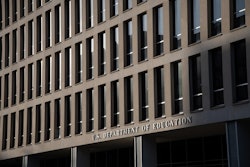Kentucky State University’s search for a new president has run into a rolling storm of troubles amid widespread criticism this week from across the university’s community over its search committee’s controversial recommendation of a list of final candidates that excludes the institution’s widely embraced interim president.
The decision sparked complaints from Kentucky State’s faculty senate and discussions in some classes about it. By mid-week, acting Provost Candace Love Jackson, had sent an e-mail message to the university’s faculty to stop “immediately” from discussing the search in class with students.
A key member of the university’s staff senate and, separately, several state lawmakers who have been supportive of the university, also had pointed questions about the finalists, according interviews in the Lexington Herald-Leader, the daily newspaper that serves the Lexington-Frankfort area and has followed the university for years.
University officials declined to comment about the series of developments surrounding the presidential search. A spokesperson for the small, state controlled institution located in Frankfort, the state’ capital city, said a statement on the situation was coming soon.
The university’s interim president, Aaron Thompson, and acting provost Jackson, were out of the state late this week and unavailable for comment, said the spokesperson. The university’s general counsel was not commenting at the time of inquiry, the person said.
Furor about the list of finalists began emerging this time a week ago when the university Board of Regents’ five-member Presidential Search Committee voted three to two to accept the list of three final candidates from its Washington, D.C.-based consultant, Academic Search. Those who did not vote for the list said background information had not been shared with them
Two of the three candidates — M. Christopher Brown and Said Sewell — were academics with higher education experience that includes some question marks about their past service. Thomas Colbert, an Oklahoma judge who is a Kentucky State alumnus, had less than two years’ experience (1982-84) in higher education serving as an assistant dean in a university law school.














